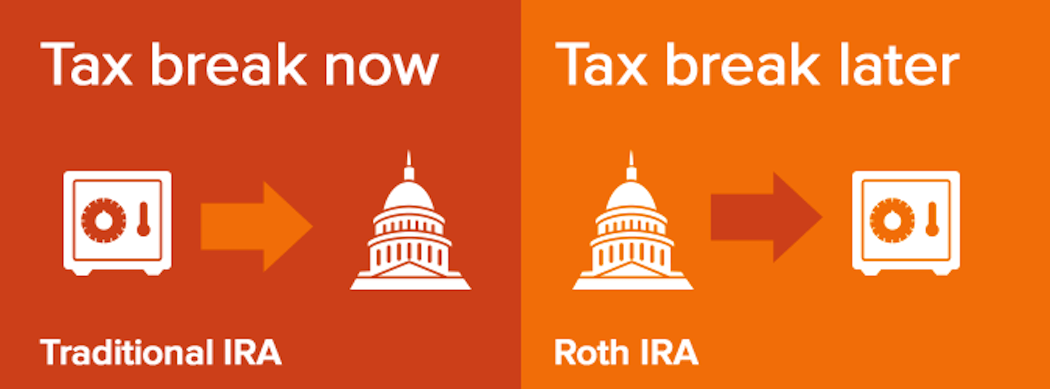
When planning for retirement, it’s vital to understand the tools at your disposal. Individual Retirement Accounts (IRAs) are popular investment vehicles that offer tax advantages to savers. There are two main types: the Roth IRA and the Traditional IRA. Both have unique benefits and drawbacks, and the best choice depends on individual circumstances. Let’s dive into a comparative analysis of these two IRAs to help you determine which is right for you.
The Basics
Traditional IRA
- Contributions might be tax-deductible in the year you make them.
- Withdrawals during retirement are taxed as regular income.
Roth IRA
- Contributions are made with after-tax dollars; no deduction.
- Withdrawals during retirement are generally tax-free.
- Tax Benefits
- Traditional IRA: The primary appeal of a Traditional IRA is the up-front tax deduction. This deduction can be particularly valuable if you are in a higher tax bracket now than you expect to be in retirement.
- Roth IRA: The Roth IRA shines in its promise of tax-free distributions in retirement. This can be a boon if you anticipate being in a higher tax bracket during your retirement years than you are now.
Income Limits
- Traditional IRA: Anyone with earned income can contribute, but tax deductibility is phased out at higher income levels, especially if you or your spouse has access to a retirement plan at work.
- Roth IRA: There are income limits that restrict high earners from directly contributing to a Roth IRA. However, there are backdoor methods for high-income individuals to fund a Roth.
Required Minimum Distributions (RMDs)
- Traditional IRA: RMDs are mandatory starting at age 72. This means you must begin withdrawing a certain amount annually, which can be a concern if you aim for tax-planning flexibility in your later years.
- Roth IRA: There are no RMDs, allowing your funds to grow tax-free for as long as you live. This feature is handy for those considering estate planning or passing assets to heirs.
Early Withdrawals
- Traditional IRA: Withdrawals before age 59½ are subject to a 10% penalty and regular income tax unless specific exceptions apply.
- Roth IRA: You can always withdraw your contributions (but not earnings) without penalties or taxes. For payments, withdrawals before age 59½ may incur taxes and penalties unless certain conditions are met.
Considerations for Future Tax Rates
If you believe tax rates will increase significantly, a Roth IRA may be the better choice, as you lock in today’s tax rates on contributions and enjoy tax-free withdrawals later.
Conclusion
The decision between a Roth and a Traditional IRA is not one-size-fits-all. Consider your current financial situation, expected tax rates in retirement, and specific retirement goals. It’s often helpful to consult with a financial advisor to make an informed choice tailored to your needs. Remember, investing in your future is a commendable step, regardless of which vehicle you choose.



